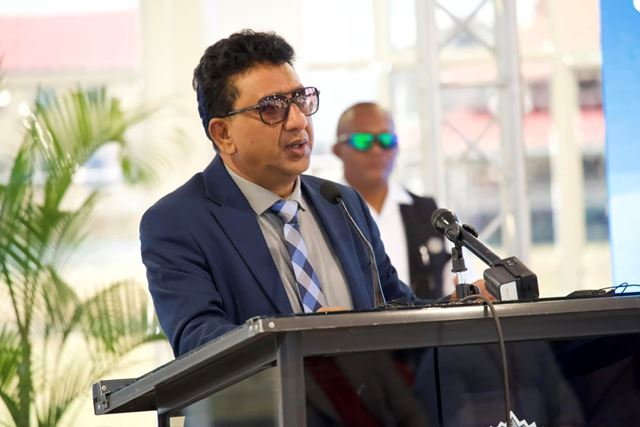
Attorney General and Minister of Legal Affairs SC, Anil Nandlall, has announced government’s plans to review the Cybercrime Act, to “protect citizens” from defamation and slander on social media platforms. The announcement was made during his weekly programme, Issues in the News, aired on Tuesday, where he highlighted the dangers posed by unregulated social media use.
Minister Nandlall in his address, expressed concern that social media has become a powerful “weapon” capable of damaging reputations and hindering national progress. He stated, “It is the abuse of freedom of expression, and a government cannot stand idly by in the face of such an onslaught against its citizens.”
The Cybercrime Bill, originally passed in 2016, comprises 43 clauses and four amendments that cover a wide range of cyberspace offences, including illegal access to data, computer misuse, system interference, child pornography, harassment, and intimidation. The bill underwent an amendment in 2018 to remove the controversial sedition clause.
However, according to Minister Nandlall, further revisions are necessary as cyberspace has become as dangerous as physical space in some instances.“This onslaught emanating from social media platforms is causing public and private harm, and it will not continue without a response from the government,” Nandlall stated.The Attorney General assured that the Law Reform Commission is prepared to complete its review of the Cybercrime Act before the National Assembly reconvenes in October.
This review is expected to incorporate international standards, as two representatives from Guyana, including Deputy Chief Parliamentary Counsel Joann Bond, are participating in the ongoing United Nations Convention on Cybercrime.
Additionally, he said, the Law Reform Commission has been tasked with reviewing criminal procedure statutes to allow for legal documents to be served to individuals overseas who commit cybercrimes against citizens of Guyana. The government also aims to address potential legal objections related to which court holds jurisdiction over cybercrime cases and the proper procedure for serving legal documents.
He argues vehemently however that while amendments will strengthen legal protections against cybercrime, they will not infringe on citizens’ freedom of expression or the freedom of the press.













